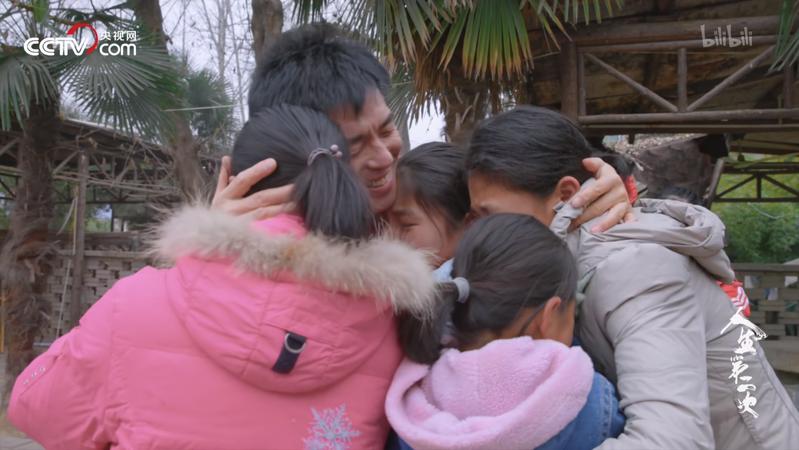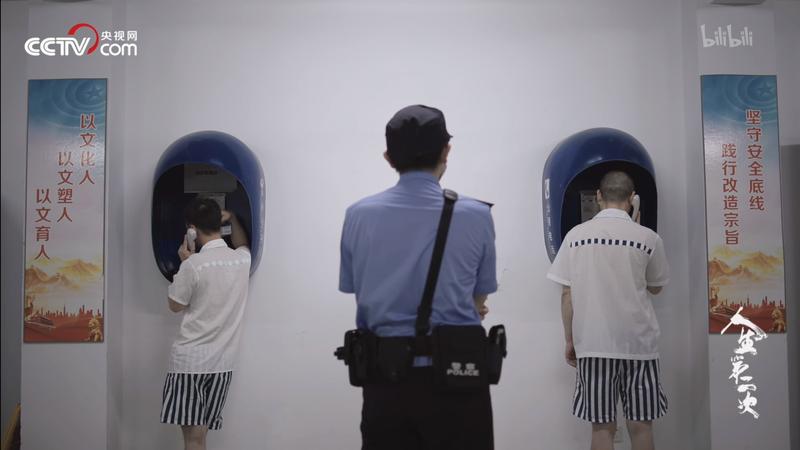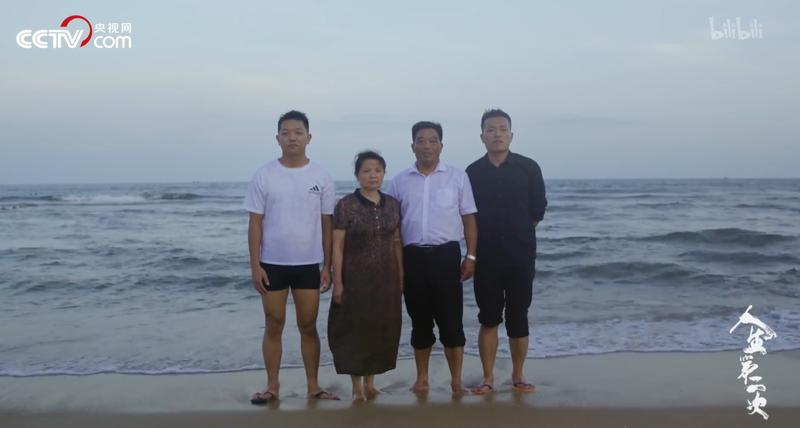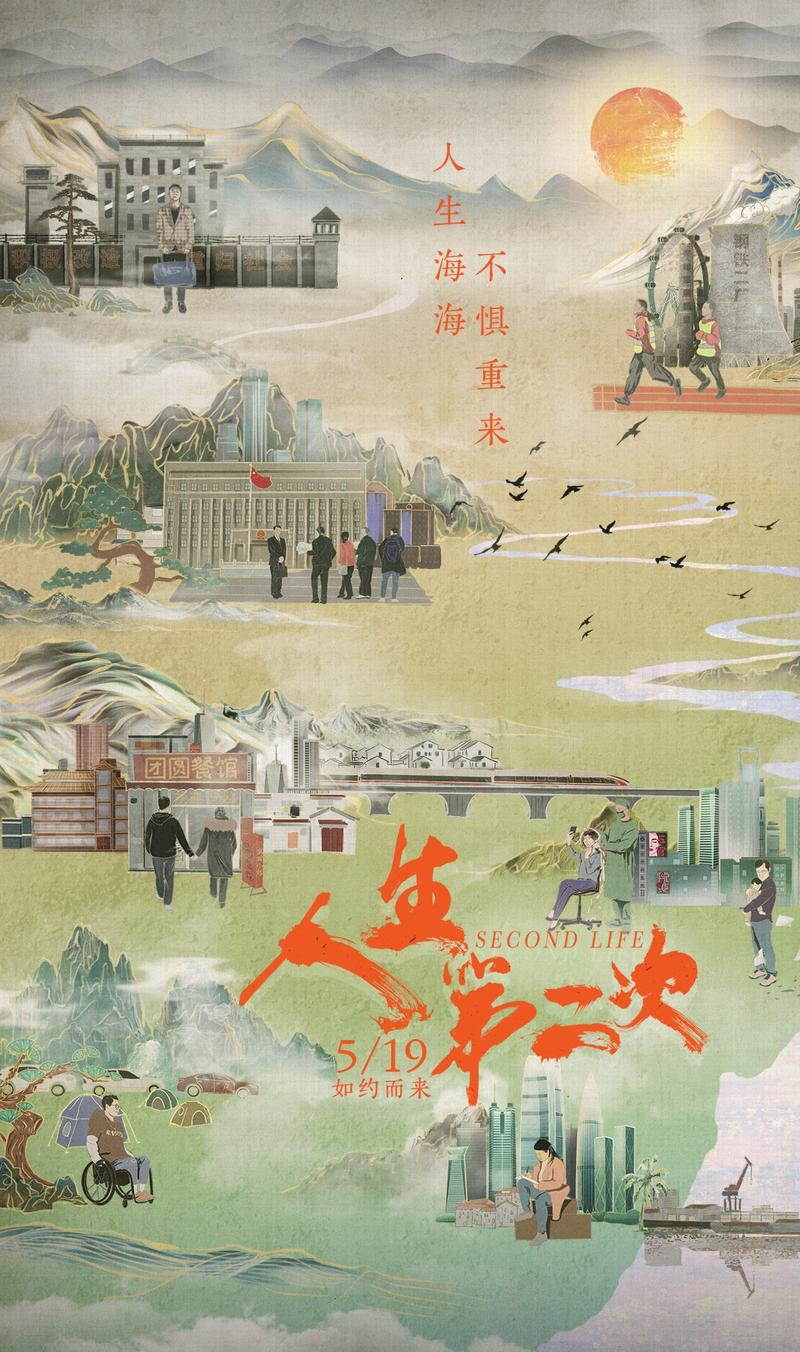Fear and hope mix in a popular documentary series on eight people who overcome incredible challenges, Wang Qian reports.
 The documentary shows students congratulating physical education teacher Bai Jian in Anshan, Liaoning province, after his wife gave birth. (PHOTO PROVIDED TO CHINA DAILY)
The documentary shows students congratulating physical education teacher Bai Jian in Anshan, Liaoning province, after his wife gave birth. (PHOTO PROVIDED TO CHINA DAILY)
The documentary Second Life tells the stories of eight people who have faced and beaten overwhelming odds.
The eight-episode series includes how Zhan Xulian spent more than 18 years before reuniting with her son who was kidnapped at the age of 4; how physical education teacher Bai Jian changed the lives of more than 120 children and teenagers through running; how He Huajie sought the strength to accept his new life in a wheelchair after a car accident and how Mao Hui returned to his family and society after 11 years behind bars.
Life is like a long river with ups and downs. When we record others’ stories, we experience our own growing-up.
Zhang Hao, producer of documentary Second Life
The series also covers social issues about the boom of plastic surgery, surging divorce rates and migrant workers in big cities. The documentary team spent almost two years to observe how ordinary people reconcile with their traumatic past and manage to move on.
"In Second Life, we try to explore a variety of possibilities in life that need people to open their minds and endeavor to overcome their situations," says Zhang Hao, producer of the documentary, adding that "second life" in the title refers to the rebuilding of lives.
Premiered online on China Central Television and video-streaming platform Bilibili on May 19, and Dragon TV on May 24, the series has earned critical acclaim.
On Bilibili, Second Life had been viewed more than 36.2 million times by Wednesday. It's rated 9.3 points out of 10 by more than 10,300 users on review platform Douban. Viewers say the series can make one emotional, feel connected with the protagonists, and understand their suffering and cheer their triumphs.
 The documentary shows Mao Hui (left) talking to his mother from a prison phone before his release. (PHOTO PROVIDED TO CHINA DAILY)
The documentary shows Mao Hui (left) talking to his mother from a prison phone before his release. (PHOTO PROVIDED TO CHINA DAILY)
A Douban user named Andy4936 comments: "Second Life gives a glimpse of the cruel side of life, such as human trafficking, broken families, incarceration, the plastic surgery boom, and how behind the cruelty people chose to live their lives to the fullest and didn't let go of hope."
For Zhang, it is "the power of authenticity, which can be a struggle for viewers, but can also touch their hearts deeply".
"As a documentary producer, I don't hide from reality and hope that people can go beyond the harsh reality to see the bravery and courage," Zhang says.
In the eyes of Qin Bo, chief director of the documentary, Second Life has a realistic meaning for everyone facing uncertainty during the ongoing COVID-19 pandemic, which tells us that no matter how terrible things are, we will get over it and become stronger, because tomorrow is another day.
"Life is a journey, not only with joy and celebration, but also with accidents and hardship. Facing the latter can trigger two kinds of emotions-fear, which leads to suspicion, and love, which awakens trust and courage. Fear and love form the main theme of the documentary," Qin says.
Narrated by Zhan, whose son Wei Zhuo was kidnapped outside her restaurant, the first episode Reunion Restaurant shows that the heartbroken mother kept the restaurant open for 18 years in Qichun county, Hubei province, to keep the memory of Wei alive. Meanwhile, Wei was living under the name of Zhong Jiajin in Shantou, Guangdong province, about 900 kilometers by road from Qichun. He was sold to a couple shortly after being taken.
The episode shows the foster father quoting a suspect accused of multiple charges of human trafficking as saying that the boy was abandoned by his parents. Thanks to DNA testing, Wei's identity was established and he was able to reunite with his parents.
 After 18 years of anguish, Zhan Xulian is reunited with her son Wei Zhuo (left) who was kidnapped when he was 4. (PHOTO PROVIDED TO CHINA DAILY)
After 18 years of anguish, Zhan Xulian is reunited with her son Wei Zhuo (left) who was kidnapped when he was 4. (PHOTO PROVIDED TO CHINA DAILY)
According to the director Qin, a documentary needs to be more than a simple news report.
From Wei's perspective, he had to deal with the complicated relationship between what he believed were his parents and his actual biological parents.
Before the reunion, Wei's business had failed and he landed in debt. In the episode, he says he first hoped his biological parents could help him out of the debt. However, after knowing that his grandmother had died in a car accident when looking for him and his biological parents had experienced tough times, Wei decided to pay off his debt on his own through hard work.
"It has taken 18 years to reunite with my parents and clear my doubts about my identity. I have two families and embraced my second life," Wei says on social media.
However, the parents he was given to, in good faith on their part, "rejected the filming", according to the chief director Qin.
"They cried asking if they had done any wrong, I knew that to some extent, our shooting had hurt their feelings," Qin says.
Like Reunion Restaurant, six other stories in the series have a resonance among the viewers. The exception is the sixth episode No Looking Back. The lens follows Mao, who spent 11 years in prison, on his journey home and back into society. It shows how his parents and girlfriend waited for Mao. When he went behind bars, his daughter was just 33 days old.
"It is the most controversial episode and I sensitively feel that the topic challenges public perception. Many viewers question why to film such a man and the unspoken words indicate that such people do not deserve a second chance," Qin says.
"We want to face the reality along with our viewers that there are many people, like Mao, and after time has been served, how they integrate into society is a question to be discussed," Qin adds.
 (PHOTO PROVIDED TO CHINA DAILY)
(PHOTO PROVIDED TO CHINA DAILY)
According to the episode director Sun Gongxu, China has over 600 prisons, incarcerating more than 1.6 million people, and behind the numbers are profound issues such as the challenges of prisoner re-entry into society and preventing them from returning to crime.
"Mao is a man who summons up his courage to face society directly and raises his chest to be a man. His story reflects the theme of Second Life," Sun says on social media.
Second Life is part of a planned "life-themed" documentary trilogy. In 2020, The Firsts in Life premiered and became popular online, focusing its lens on the 12 first-time moments of great significance to Chinese people, such as birth, marriage and career.
"In my eyes, the trilogy can be taken as the three distinct life stages-childhood, adulthood and old age. The Firsts in Life is similar to childhood, with curiosity and excitement; Second Life is similar to adulthood, coping with unexpected life events and struggles; and the last one will be similar to old age, when people look back on their whole lives," producer Zhang says.
"Life is like a long river with ups and downs. When we record others' stories, we experience our own growing-up," he adds.
Contact the writer at wangqian@chinadaily.com.cn


